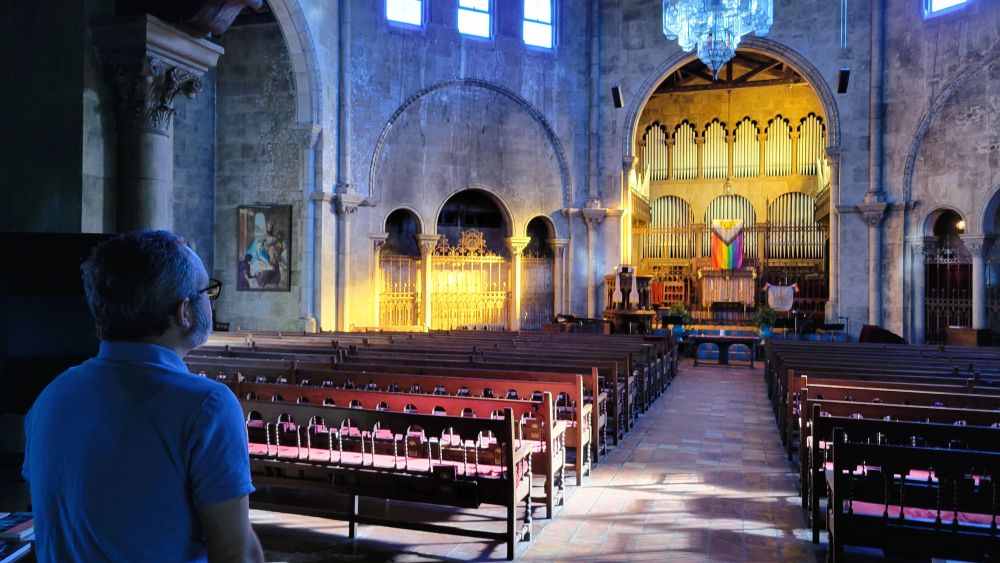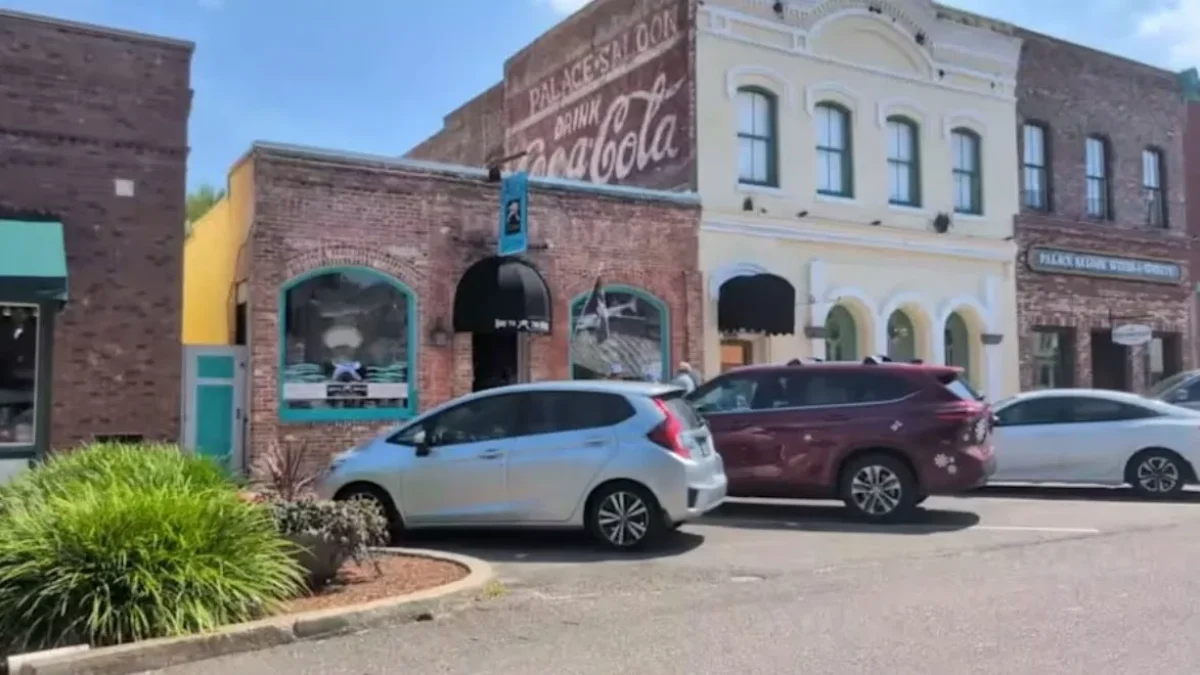A historic church’s white concrete edifice stands smack in the heart of the Riverside community, a bit weathered after 99 years.
Six steps at Riverside Church at Park and King lead to a main door with carved crosses under an archway bearing a bas-relief of Christ. But the door shows its age, as do stained concrete walls on parts of the huge sanctuary.
Some wood-framed windows also display signs of leaks.
But the church has new hope. The church just received a $359,534 grant from the National Trust for Historic Preservation to restore the church’s interior and exterior, the Rev. Adam Gray says.
The money is part of the trust’s annual Fund for Sacred Places and Partners for Sacred Places programs, which awarded a total of $8.73 million this year to historic and architecturally significant faith communities across the country.
Riverside Church at Park and King was the only Florida sanctuary to receive one of 30 grants nationwide.
“It’s really encouraging because we know we have something really wonderful here at the corner of Park and King,” Gray said. “This sanctuary designed by Addison Mizner is one of a kind — there is nothing like it anywhere in the world. It is a National Registry of Historic Places landmark. It is a beautiful sanctuary, and to have this national committee look at us and say we see as much value here as you do is a huge boon to us.”
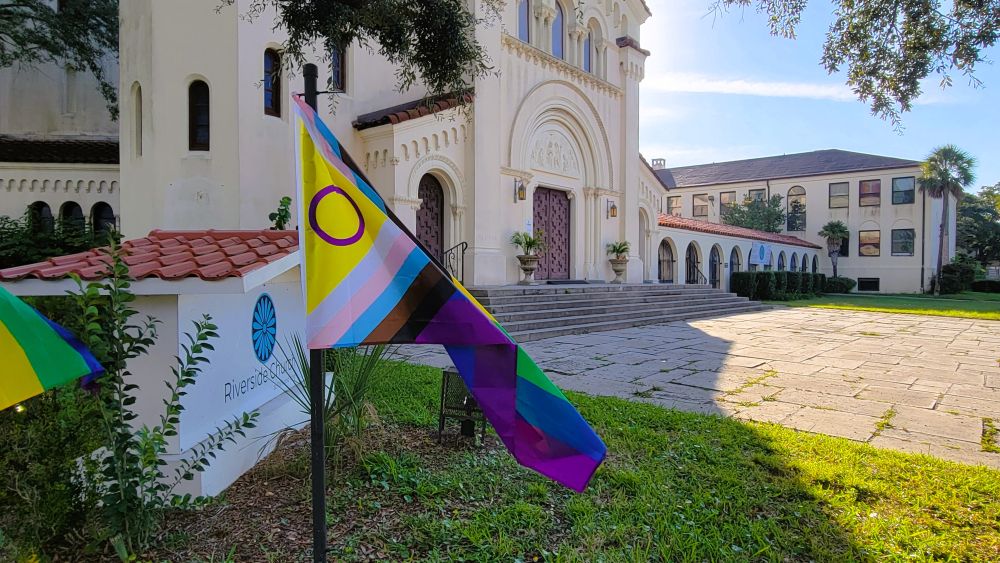
Riverside Church now becomes one of 168 congregations nationwide to receive over $33 million since Partners for Sacred Places was founded in 2016.
“These sacred places are not only architectural treasures — they are vital centers of congregational life and community anchors offering meals, education, cultural enrichment and refuge,” organization President Bob Jaeger said in a news release about the grant. “We are honored to support their preservation and their continued role in public life.”
The trust’s president and CEO, Carol Quillen, said: “Sacred places hold a profound role in the American landscape, embodying both heritage and hope. Through the National Fund for Sacred Places, we are ensuring these spaces remain vibrant hubs of community life, sustaining connection, creativity and service for generations to come.”
Needs at the Riverside church
Riverside Church at Park and King was built in 1926. Mizner came up with a 1½-story design with an octagonal dome and red tile roof and imported blue Italian glass windows around it. The sanctuary was placed on the National Register of Historic Places in 1973.
What looks like stone inside and outside is actually 4 inches of concrete mortar laid atop its solid brick core, then intricately carved.
Now cracked in places and stained with age, the facade needs to be resealed and repainted, Gray said. The big cypress doors, each with carved Greek crosses in their fascias, also show some deterioration.
“The wooden pieces and some of the connections around the roof were not built to last forever, and so a lot of this restoration that we are doing is all wooden-framed windows — all of the places where the different sections of the roof connect together so they stop leaking,” he said.
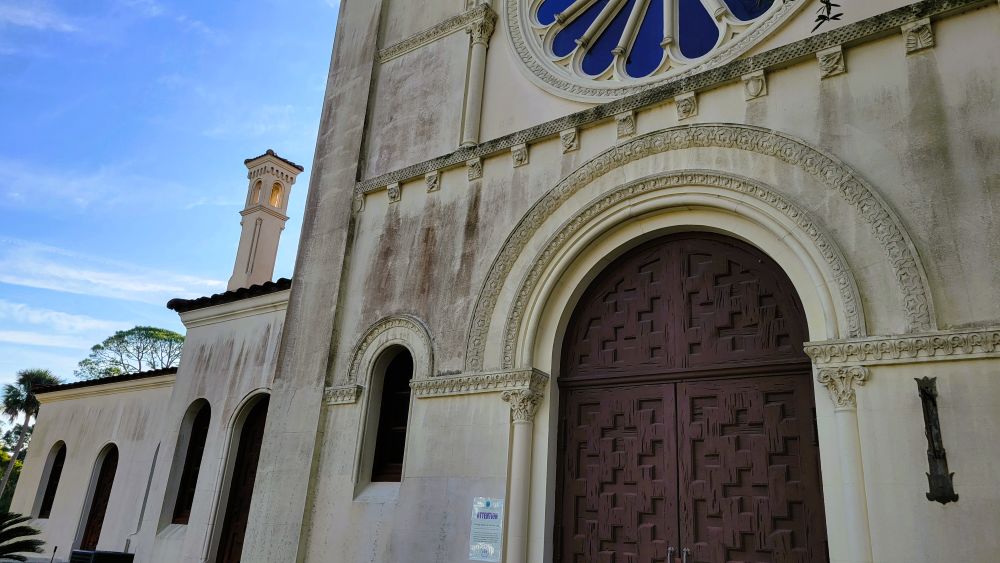
The main altar is under a great stone archway, framing part of the sanctuary’s pipe organ array behind the pulpit. More pipes from the Skinner 7-Rank organ line the choir loft behind, part of what Gray says is the largest church organ in Jacksonville.
Around the interior, an ornate chandelier, plus star-shaped lanterns representing the Star of Bethlehem, were specially made for the church. Flooring tiles underfoot were recovered from a 15th century Spanish cathedral.
“Mizner wanted it all to feel as authentic as possible, so he went to the Spanish government and the Catholic Church and asked for permission to recover this tile from a ruined cathedral,” Gray said. “So the floor we are standing on is 500 years old. Even though the church is only 100 years old, we are even more rooted in the history.”
The stone walls inside look ancient, but they were artificially aged at Mizner’s request, simulating cypress-beamed ceilings with now-faded painted decorations that look like 15th-century Italian Renaissance designs.
“We will restore the paint work that is done under the rafters and beams,” Gray said, pointing upward at one decoration near the entrance. “Some of the stuff that does fade with time, we will put it all back to the way it was in 1926.”
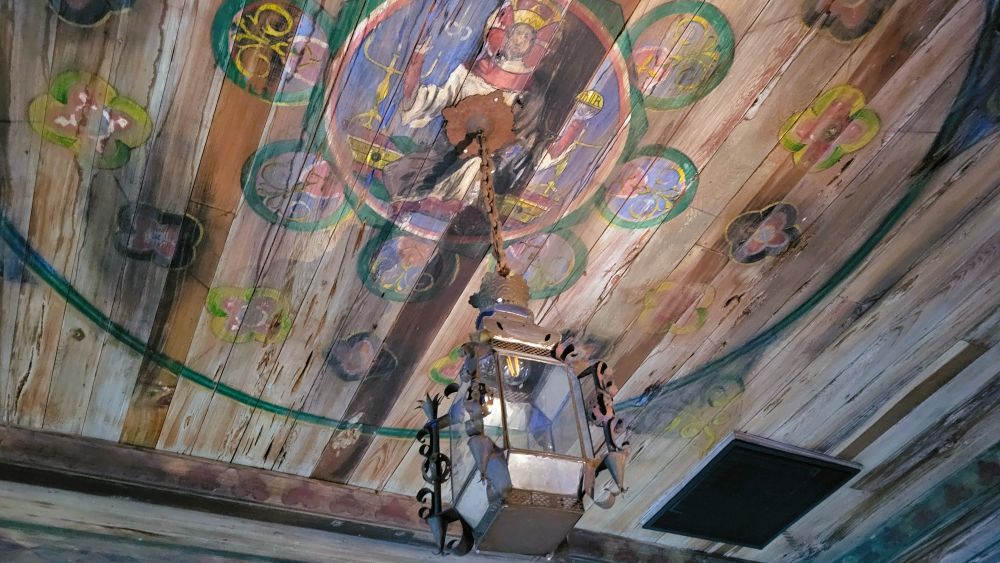
Gray said the church has really “cemented our identity around being a servant and hub for our community” with theater groups, home school co-ops and town meetings in recent years
The grant will become the core of an effort to secure matching funds to focus on the church’s needs so the future can be assured, he said.
“In another 100 years, we will be able to hand the baton to yet another generation that carries forward the light of hope in our community,” Gray said.
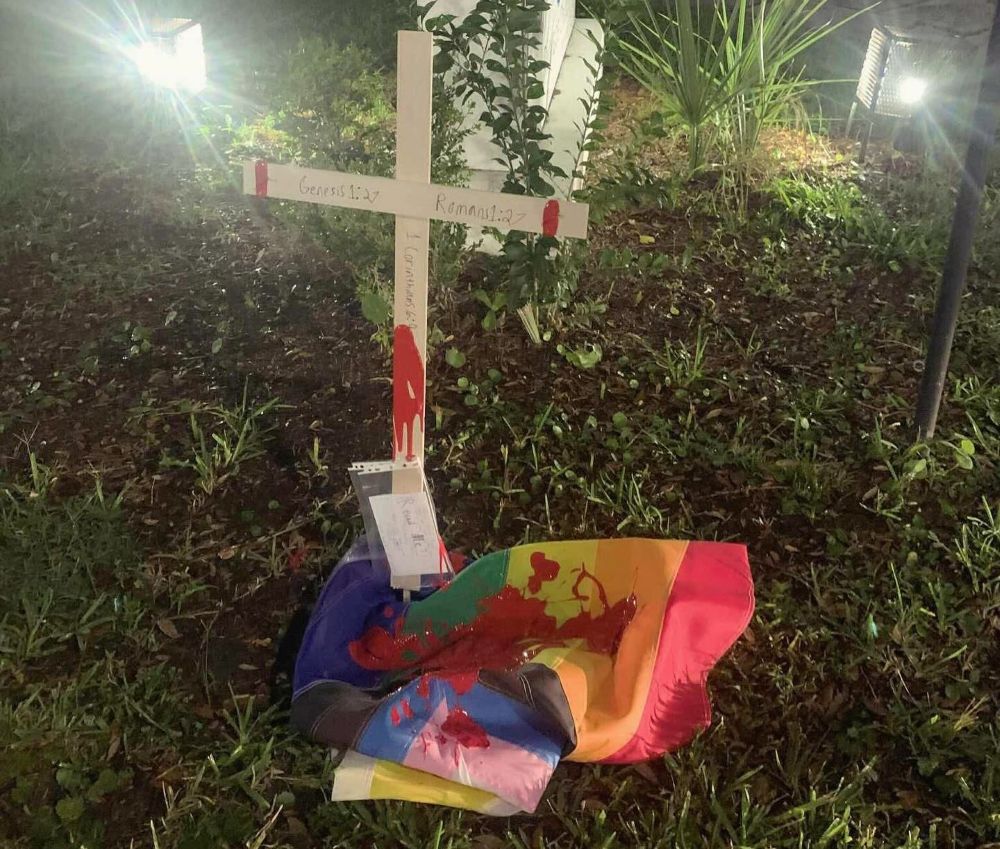
Striving for unity
The promise of the grant, however, came as a more nefarious act struck the church this week.
On Sunday, someone tore down the Pride flag that had been next to the church’s main sign at the corner of Park and King streets, splashing it with red paint, then staking it to the ground with a cross.
“There are so many people right now who see the cross as a symbol of rejection, as a symbol of hate,” Gray said. “But we believe that the cross is a symbol of unification, a symbol of inclusion that what happened on the cross is all of human violence, all of human hatred, coming to God, and God turned it into resurrection.”
On Monday, the church replaced the damaged flag with two larger Pride flags flanking the main sign — “because hatred has no place in Jacksonville, and we are a people of hope,” Gray said.



